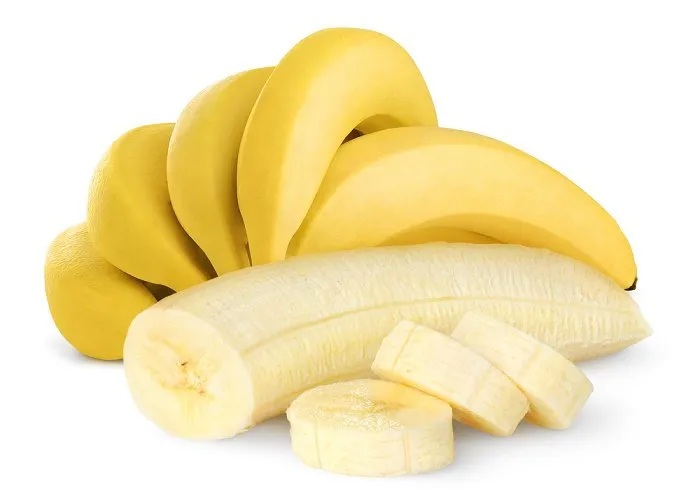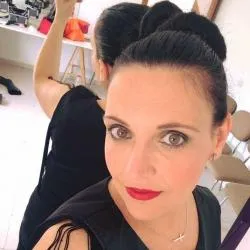My problem is that navigating the Internet I found a page.Puleva health website: .in which it is said that banana is good for diabetes and hypertension.
Considering that these people from Puleva is an important Spanish company, and that the article is endorsed by a DRA that seems to be belongs to the University of Granada, the truth is that I feel really disoriented and I do not know who to believe !!
Well, I am "educating" (hehehe) to my husband to eat healthy because his doctor tells him that although he still does not have diabetes, he has a tendency to type 2 diabetes.
We eat vegetables, fruits, grilled roast fish, idem chicken breast, a lot of fiber and no sugar!The problem is that my husband loves to eat bananas and past days when he met his doctor, he was ashamed to ask this question.
I have asked in a couple of webb pages and have not answered me!
Thanks from Yá!
No signature configured, add it on your user's profile.
Bananas are good, so you can eat them.
Of course, it is a fruit rich in sugars, so, if you have a predisposition to be diabetic (you will tell us what data you handle to know), you should eat them without excesses, that is, in moderation, like anything rich in sugars.
I pass a link to a really serious website on the subject and very reliable:
Link
Health
No signature configured, add it on your user's profile.
Hello a greeting, I answer you about the bananas within what I know.
For a little high sugar in blood, it is best to eat, vegetables that have few hydrates and little glycemics.Proteins such as meat, fish and eggs do not influence blood glucose.
Then regarding the bananas, it should not eat them very mature because they have a greater glycemic index by having less fiber.
The fiber is essential because the glucose curve is slower.
Platanos have (and above all ripe), a very high what is called "index or glymatical load" according to maturation varies from 70 to 80. The glycemic load is the time when a food passes its sugars to the blood.
There are tables that indicate the glycemic load of food.
Regarding the banana, it is advisable to take it when I go for a walk, just like food after walking.
At night if after dinner I will not do any exercise, I would say that it reduced the hydrates at dinner and if it is possible not to eat them, and dinner only based on proteins.
That is to say, fish, chicken, meat in general.And not dinner or pharinaceos or fruit since they are carbohydrates.
No signature configured, add it on your user's profile.
Half banana is equivalent in rations to an apple ..
Hija de 35 años , diabética desde los 5. Glico: normalmente de 6 , pero 6,7 la última ( 6,2 marcaba el Free)
Fiasp: 4- 4- 3 Toujeo: 20
Dear new friends, your messages have given me very peace of mind!We are living somewhat difficult moments at the health level (we have lived in Scandinavia for 35 years), because I have gone through two breast cancer and cervical cancer operations (just this morning I checked the doctor in the routine consultation and they found me well (Until now)Thanks!
No signature configured, add it on your user's profile.
You're welcome, Marivel, for that.
By the way, Juanqui, I don't think it's advisable to suppress hydrates at dinner.
Health
No signature configured, add it on your user's profile.
In other threads we have already spoken that exclusive protein consumption can also cause an increase in blood glucose:
Nutritionally, the ideal is to distribute the amount of carbohydrates in the different meals.Thus the digestive system metabolizes it much better and with less effort.
And depending on medication, skipping carbohydrates can be a reason for safe hypoglycemia.
Pills such as Daonil, Euglucón, Minodiab, Amaryl or Diamicron have sufficient hypoglycemic capacity to put in a problem the person who does not eat the carbohydrates that touches him in each intake.
No signature configured, add it on your user's profile.
Hello, in relation to what you have written, I think it is an important issue and it is worth delving a little so as not to mess.
I would never tell a person with type one diabetes to stop eating hydrates at night.
You have to clearly distinguish the two types of dibetes that although they are called the same they have nothing to do.
In type two, or with high sugar as they said formerly (I have the high sugar).They recommended diet and exercise without
medication.It is for those people that I remove the hydrates at night.
And in the morning they rise with acceptable levels of sugar.
Then it is true that the proteins also a part become hydrates but it is very little around 30% of the grams of protein ingested that becomes hydrates.
Then "Important what you have put Owash, when you have the high sugar, they send you medication."The sulfunilureas that you have put, do not really work in the body, and if it is true that who is taking them will have a diabetological educator that indicates diet.
I referred to for example my mother, who has the high sugar and takes biguanidas (metformin), I tell him not to eat hydrates at night.
It is 100% sure you can do it and in fact it rises well in the morning.
In type 1 as my son I would never tell him not to drink hydrates at night.
But my mother is told why she is an older person with obesity and taking metformin.And nothing happens.
Another thing is what you have put with the sulfunilureas, I do not know that medication.
No signature configured, add it on your user's profile.
I forgot, the Lord's wife in question that asks the question.At no time says that her husband takes on medication.Therefore what I wrote refers to people with high sugar.
No signature configured, add it on your user's profile.
Eating without hydrates is not good, neither in type 1 nor in type 2, nor in healthy people.If hydrates are not ingested, the body obtains the energy burning fat, combustion that is dirty and generates toxins and ketones.
That is the greatest danger of diets such as Atkins or Dukan.
In the dinners there must be hydrates, in limited quantity, of course, and in type 2 it is preferable that they are slow, but it is very convenient to drink hydrates from little "sweet" fruits, vegetables, integral bread, etctype 2).
In type 1, the corresponding hydrates and is already.
Health
No signature configured, add it on your user's profile.
They never told me to suppress the hydrates.Is
More, when I did it because
Yes, they gave me hypos so ... even if it is a bread stick ... something!
No signature configured, add it on your user's profile.
Good day.This is an old consultation, but I think ... my husband loves bananas.In the analytics, potassium values came out high and the cardiologist recommended reducing intake, since a lot of potassium is bad for the heart.Greetings.
Debut 46 â- 2012. DM1. Celiaquía e intolerancia lactosa. Anemia perniciosa.
MiniMed 640g + SmartGuard.



